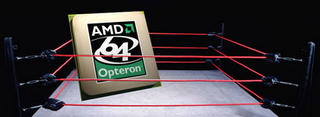Certain proverbs have a characteristic of nagging at one’s understanding of them ever so frequently. Take for instance the old adage “Necessity is the mother of all invention”. The validity of the word Necessity has inspired quite a few arguments. Some people, ignoring the subtle difference in the meaning between the words, are of the opinion that Need would be a better substitute to Necessity. Some others argue that neither qualifies to be the cause of anything and that Chance provides the best alternative. This theory argues that so much is invented based on results, corollary to those being researched, that it is these chance discoveries which are the essence of creation. And finally one more interesting view point that I have come across is that Lethargy, or lack of motive purpose is the mother of invention. Even if one does not associate rather harshly the meaning of lethargy, as lack of motive purpose, one is led to believe by this assertion that laziness is the pinnacle of human pleasure, and the aspiration to attain this leads us to invent things.
The above argument is mostly an extension of an older philosophical debate. An unbiased, narrative article I recently read described two different sides of a similar argument: between merits of pure science and those of technology. It described the two different view points, that of the purists claiming that pursuing scientific truth is necessary and valuable in its own right without regard to its application, and that of the technologists discrediting the exalted view of science being guided from within and propounding a more democratic framework, with a need of collective good promoting scientific inquiry. Trying to correlate these into the existing philosophical structures I referred to the Britannica Junior Encyclopedia’s essay on Philosophy. The above argument is a direct consequence of the contrasting views that exist on the theory of human knowledge and opinion, to that of the methodology of gaining knowledge.
A philosophically equivalent parallel to this argument can be found in the debate between the Rationalists and Empiricist schools of thought. Both these theories deal with the theory and the sources of knowledge, but the basic dichotomy of the two again depends on the contrasting views of the ways to gain this knowledge. The rationalist source of knowledge and subsequently of reality would be through deduction of concepts formed in the mind. This theory relegates the need of appeal to the senses for gaining knowledge and highlights apparently, the priority of perception of reality rather than reality itself. This is in a way similar to the theory of Maya in one of our Indian theologies, expounded by Shankaracharya. The empiricist source of knowledge would be by means of direct perception of immediate facts only through sense observations and experiments. Here too the concept of identity and existence are deemed unimportant and non-conceptualized sensory data is considered as valid forms of knowledge.
The flaw, according to me, in these theories would be firstly the sacrifice of reality and secondly as a consequence of non conceptual sensory observation, the belittling of the mind. The argument for pure science trivializes the application of scientific knowledge and limits it to theorizing about phenomena. On the other hand the argument for technology belittles the need for such conceptualization and emphasizes on the needs of the sensory reality. This leads us to the reason why there seems to be a debate over which concept of knowledge fits the meaning of the proverb best. Is the need for technology, the source of scientific inquiry into knowledge, or is technology a chance byproduct in the grand scale of purist scientific outlook.
It probably augurs well now to look for a synthesis between the source and output. Consider these examples; the explanation of the theory behind semi-conduction has led to the understanding and development of electronics and the electronics industry. But it has been the growing requirements of memory and processing power that has fuelled the scientific inquiry into conceptualizing better explanations of conductivity and subsequently the research into better semi-conducting material. The mapping of the human genome may be a purely scientific undertaking based on the need to understand and explain the evolution of mankind but it is driven in part also by the lucrative insights it can provide in tackling genetic disorders among humans. Just as sensory data is just data without the application of a man’s intellectual process and notion of conception is just a notion without man’s sensory inputs, so are pure science and technology interlinked.
Etymology dissects the word Philosophy as Philien and Sophy, Greek words for Love and Wisdom respectively. Hence Philosophy is the love of wisdom and wisdom would suggest that in the above debate we need to go further than just testing knowledge by its practical consequence or vice versa and develop an integrated synthesis of knowledge and application. Now, if an etymologist can provide a single word for an ‘Integrated Synthesis of Knowledge and Application’, then I believe we have an apt word for our favorite proverb!
References:
Britannica Junior Encyclopedia, William Benton, 1972 edition.
Kant Vs Sullivan, Ayn Rand, 1970



